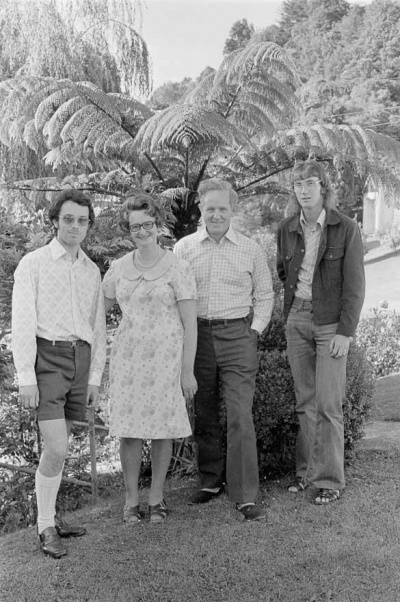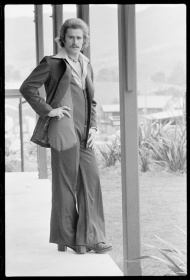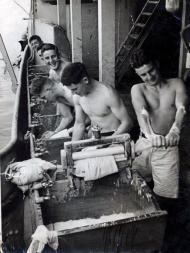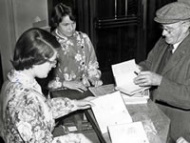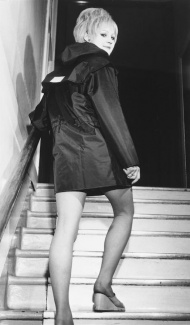Events In History
-
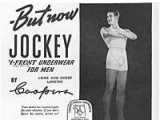 16 March 1940Jockey Y-fronts hit NZ shops
16 March 1940Jockey Y-fronts hit NZ shops'If old-fashioned underwear makes you squirm, switch to Jockey', urged adverts that also promised 'real masculine comfort' and 'no bunching discomfort'. Read more...
Articles
Viceregal visiting

'To be invisible is to be forgotten,' constitutional theorist Walter Bagehot (1826–77) warned. For the King or Queen's New Zealand representative, the Governor-General, that meant hitting the road
- Page 2 - Putting on appearancesNew Zealanders still loved a good viceregal do, and no one was observed more closely than Their
History of the Governor-General

New Zealand has had a governor or (from 1917) a Governor-General since 1840. The work of these men and women has reflected the constitutional and political history of New Zealand in many ways.
- Page 5 - Splendid ornamentalsWith the appointment of Lord Onslow in 1889, a new type of governor took up residence at Government
Life in the 20th century

Exploration of everyday life in New Zealand from 1900 to the mid-1980s
- Page 6 - AppearancesWe present ourselves to the world by the way we dress and wear our hair. Whether we have carefully selected from a full wardrobe or simply grabbed the first thing at hand, our
Notes for My Successor

Until the late 1960s New Zealand's Governors-General were British, mainly minor aristocrats or admirals or generals.
- Page 6 - Pay and perks and handy hintsThe colonial government cut the vice-regal salary and allowances from £7500 to £5000 in the late 1880s, just when the declining British aristocracy was looking to the Empire to
The House of Representatives

New Zealand's Parliament dates back to 1854, just 14 years after the signing of the Treaty of Waitangi and the beginning of the European settlement of the country. For most of its history as a nation state, New Zealand has had some form of elected government.
- Page 7 - The SpeakerThe Speaker, who is elected by MPs, has a key role in representing the House to the Crown and in presiding over the
Pacific Islanders in the NZEF

Cook Islanders, Niueans, Fijians and Gilbert Islanders all took their place in the ranks of the New Zealand Expeditionary Force during the First World War. As well as the dangers of war, Pacific soldiers faced language difficulties, an unfamiliar army diet and European diseases.
- Page 5 - Difficulties faced by Pacific IslandersInformation on the difficulties faced by Pacific Islanders when they left their island homes for the first time and entered the
Related keywords
- fashion
- 1970s
- dunedin
- factories
- historic places
- governor-general
- governor
- alcohol
- bernard freyberg
- cyril newall
- government
- british empire
- WW1
- influenza pandemic
- cook islands
- niue
- pacific islanders
- narrow neck camp
- disease
- language
- parliament
- the speaker
- MPs
- rugby
- charles bledisloe
- great depression
- ashburton
- mid canterbury rugby
- samoa
- mau movement
- royal new zealand navy
- hms philomel
- police
- transport
- armistice
- levin
- parades
- flags
- adolescents
- sport
- children
- lighthouses
- pencarrow head
- mary bennett
- families
- cartoon
- silver fern
- libraries
- 1960s
- belgium
- fundraising
- knitting
- lady liverpool
- WW1 home front
-
Main image: MP Trevor Young and family
Member of Parliament Trevor Young with his family, December 1975

